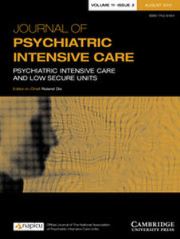Article contents
Involuntary hospitalisation: old and new
Published online by Cambridge University Press: 19 January 2007
Abstract
Current western involuntary hospitalisation legislation is based on legal philosophy and the freedom of the individual. Legislation based on medical philosophy, which focused on the need for care has been deposed. Formerly, doctors had greater authority, but with this came the difficulty of balancing the opposing agendas from various quarters. This role has been adopted by Mental Health Tribunals. Eventually, doctors accepted the new system, which in some ways made their lives easier. They continue to be concerned that the emphasis on freedom leaves some non-dangerous disorganized patients without care.
- Type
- Commentary
- Information
- Copyright
- © 2006 NAPICU
References
- 1
- Cited by


